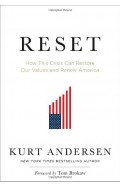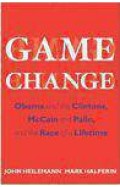- Home
- Non Fiction
- The Unmaking of the President 2016 - How FBI Director James Comey Cost Hillary Clinton the Presidency
The Unmaking of the President 2016 - How FBI Director James Comey Cost Hillary Clinton the Presidency
By: Lanny J Davis
-
Rs 1,791.00
- Rs 1,990.00
- 10%
You save Rs 199.00.
Due to constant currency fluctuation, prices are subject to change with or without notice.
We're Offering A High Discount On This Book As It Is Slightly Damaged
A longtime Washington insider argues that former FBI Director James Comey’s letter to Congress, sent just before the presidential election in 2016 was a key determining factor in Trump’s win: “Compelling criticism…lapsed Trump supporters might well open their minds to this attorney’s scholarly, entirely convincing proof of the damage done” (Kirkus Reviews, starred review).
During the week of October 24, 2016, Hillary Clinton was decisively ahead of Donald Trump in many polls and, more importantly, in the battleground states of Wisconsin, Michigan, and Pennsylvania. Then FBI Director James Comey sent his infamous letter to Congress on October 28, saying the bureau was investigating additional emails that may have been relevant to the Hillary Clinton email case. In The Unmaking of the President 2016, attorney Lanny J. Davis shows how Comey’s misguided announcement—just eleven days before the election—swung a significant number of voters away from Clinton, winning Trump an Electoral College victory—and the presidency.
Davis traces Clinton’s email controversy and Comey’s July 2016 appearance before Congress, in which he said the Clinton email matter was effectively closed. From that moment until Comey’s late October letter to Congress, Davis says, Clinton was destined to be elected president by substantial popular and electoral vote margins. But the decision to send his October 28 letter, so near to the election, not only violated long-standing justice department policies but also contained no new facts of improper emails at all—just pure speculation. Davis shows state by state, using polling data before October 28, and on election day, how voter support for Hillary Clinton eroded quickly. He proves that had the election been held on October 27, Hillary Clinton would have won the presidency by a substantial margin.
Despite so many other issues in the closing days of the campaign—Trump’s behavior, the Russian hacking, reports of Clinton momentum in marginal states such as Georgia, Arizona, even Texas—after the October 28 Comey letter, everything changed. References to “Clinton emails” and “new criminal investigation” dominated media coverage virtually round-the-clock through election day November 8. Now Davis proves with raw, indisputable data how Comey’s October surprise cost Hillary Clinton the presidency and changed American history in the blink of an eye.
We're Offering A High Discount On This Book As It Is Slightly Damaged
A longtime Washington insider argues that former FBI Director James Comey’s letter to Congress, sent just before the presidential election in 2016 was a key determining factor in Trump’s win: “Compelling criticism…lapsed Trump supporters might well open their minds to this attorney’s scholarly, entirely convincing proof of the damage done” (Kirkus Reviews, starred review).
During the week of October 24, 2016, Hillary Clinton was decisively ahead of Donald Trump in many polls and, more importantly, in the battleground states of Wisconsin, Michigan, and Pennsylvania. Then FBI Director James Comey sent his infamous letter to Congress on October 28, saying the bureau was investigating additional emails that may have been relevant to the Hillary Clinton email case. In The Unmaking of the President 2016, attorney Lanny J. Davis shows how Comey’s misguided announcement—just eleven days before the election—swung a significant number of voters away from Clinton, winning Trump an Electoral College victory—and the presidency.
Davis traces Clinton’s email controversy and Comey’s July 2016 appearance before Congress, in which he said the Clinton email matter was effectively closed. From that moment until Comey’s late October letter to Congress, Davis says, Clinton was destined to be elected president by substantial popular and electoral vote margins. But the decision to send his October 28 letter, so near to the election, not only violated long-standing justice department policies but also contained no new facts of improper emails at all—just pure speculation. Davis shows state by state, using polling data before October 28, and on election day, how voter support for Hillary Clinton eroded quickly. He proves that had the election been held on October 27, Hillary Clinton would have won the presidency by a substantial margin.
Despite so many other issues in the closing days of the campaign—Trump’s behavior, the Russian hacking, reports of Clinton momentum in marginal states such as Georgia, Arizona, even Texas—after the October 28 Comey letter, everything changed. References to “Clinton emails” and “new criminal investigation” dominated media coverage virtually round-the-clock through election day November 8. Now Davis proves with raw, indisputable data how Comey’s October surprise cost Hillary Clinton the presidency and changed American history in the blink of an eye.
The Unmaking of the President 2016: How FBI Director James Comey Cost Hillary Clinton the Presidency
By: Lanny J Davis
Rs 2,856.75 Rs 4,395.00 Ex Tax :Rs 2,856.75
The Unmaking of the President 2016 - How FBI Director James Comey Cost Hillary Clinton the Presidency
By: Lanny J Davis
Rs 1,791.00 Rs 1,990.00 Ex Tax :Rs 1,791.00
Zubin Mehta: A Musical Journey (An Authorized Biography)
By: VOID - Bakhtiar K. Dadabhoy
Rs 472.50 Rs 1,050.00 Ex Tax :Rs 472.50
Myths Illusions and Peace: Finding a New Direction for America in the Middle East
By: Dennis Ross
Rs 985.50 Rs 1,095.00 Ex Tax :Rs 985.50
The Origins of Political Order From Prehuman Times to the French RevolutioN
By: Francis Fukuyama
Rs 3,505.50 Rs 3,895.00 Ex Tax :Rs 3,505.50
Reset: How This Crisis Can Restore Our Values and Renew America
By: Kurt Andersen
Rs 450.00 Rs 500.00 Ex Tax :Rs 450.00
How To Win A Cosmic War God Globalization And The End Of War
By: Reza Aslan
Rs 625.50 Rs 695.00 Ex Tax :Rs 625.50
Game Change Obama And The Clintons McCain And Palin And The Race Of A Lifetime
By: John Heilemann
Rs 715.50 Rs 795.00 Ex Tax :Rs 715.50
Made to Stick: Why Some Ideas Take Hold and Others Come Unstuck
By: Chip Heath & Dan Heath
Rs 2,695.50 Rs 2,995.00 Ex Tax :Rs 2,695.50
No similar books from this author available at the moment.
No recently viewed books available at the moment.
Zubin Mehta: A Musical Journey (An Authorized Biography)
By: VOID - Bakhtiar K. Dadabhoy
Rs 472.50 Rs 1,050.00 Ex Tax :Rs 472.50
The Unmaking of the President 2016: How FBI Director James Comey Cost Hillary Clinton the Presidency
By: Lanny J Davis
Rs 2,856.75 Rs 4,395.00 Ex Tax :Rs 2,856.75
The Unmaking of the President 2016 - How FBI Director James Comey Cost Hillary Clinton the Presidency
By: Lanny J Davis
Rs 1,791.00 Rs 1,990.00 Ex Tax :Rs 1,791.00












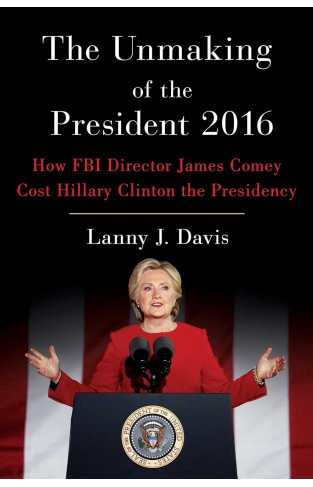
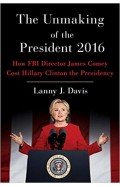
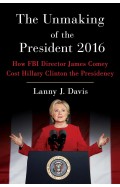
-120x187.jpg?q6)






-120x187.jpg?q6)
